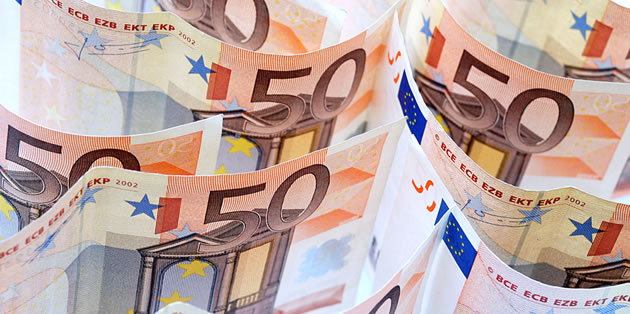The Euro to New Zealand Dollar (EUR/NZD) exchange rate strengthened by more than 1.50% to its best level in more than a week on Thursday as Reserve Bank of New Zealand (RBNZ) policy maker John McDermott surprised the market by saying that the bank is not considering an interest rate rise.
The Euro to New Zealand Dollar (EUR/NZD) Exchange Rate Climbed To A Session High of 1.4270
‘At present, the bank is not considering any increase in interest rates. Before considering any tightening in monetary policy, we would need to be confident that increased capacity utilisation and labour market tightness was generating, or about to generate, a substantial increase in inflation,’ said Mr McDermott, the RBNZ’s assistant governor.
The New Zealand economy is performing strongly as it benefits from increasing demand from Asia for the nation’s agricultural goods and a strong domestic property market. The nation also has some of the highest interest rates in the developed world at 3.5%. The strong interest rate means that investors are favouring New Zealand as a place to see higher returns on their investments.
Following McDermotts comments, the ‘Kiwi’ tumbled by more than 1% against the Euro and made sharp declines against the US Dollar (USD) and Pound Sterling (GBP).
In addition, putting pressure on the New Zealand currency was data out of China, New Zealand’s second largest trading partner, which showed that manufacturing activity in the Asian nation fell in April.
According to the HSBC/Markit Chinese Manufacturing Purchasing Managers Index (PMI), activity declined from a reading of 49.6 to 49.2 in April. In a PMI, any number below 50 indicates contraction whilst a number above indicates expansion.
‘Activity has eased somewhat going into Q2 but is not substantially weaker than over the past six months. This time last year, the index was lower at 48.1,’ said economists at Capital Economics.
Further gains for the Euro were held in check as PMI data for the Eurozone missed expectations and data out of France showed that the nation’s manufacturing sector contracted again in April.
Separately, Markit’s Eurozone composite PMI, which tracks activity across thousands of firms, fell back to 53.3 from 54.0 last month.
‘There are signs of increased risk aversion creeping in among businesses and their customers, linked in some cases to worries about Greece, which is likely to have dampened demand. However, in the case of France, the poor performance appears to reflect a longer-term malaise which, after a promising start to the year, in fact shows few signs of lifting,’ said Markit’s chief economist Chris Williamson.
Market attention will now turn to Friday’s Eurogroup meeting and German IFO data.



